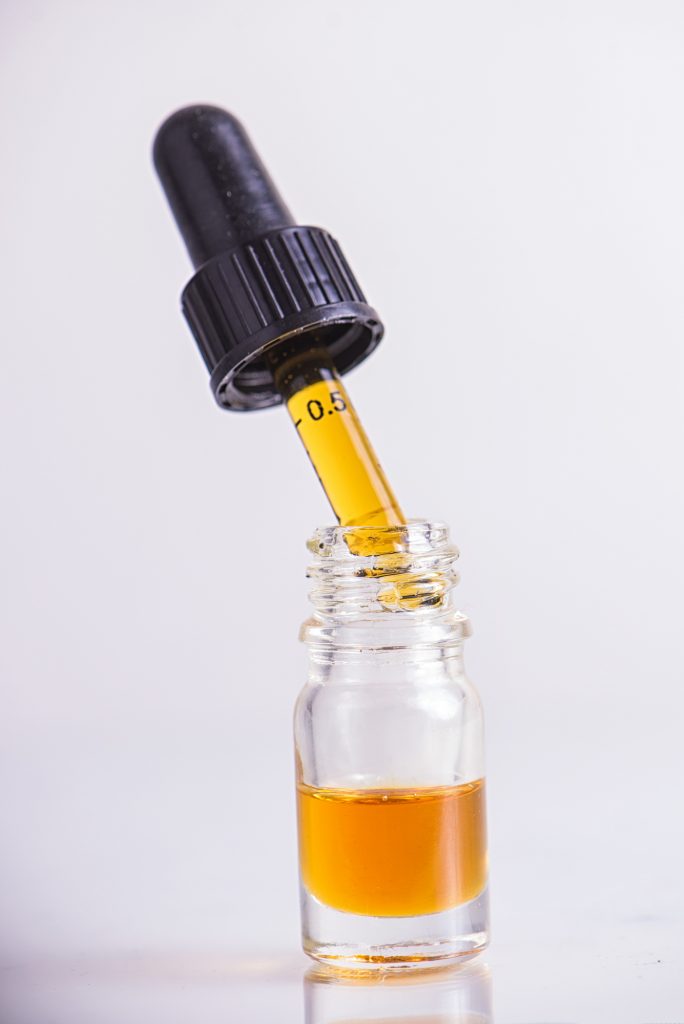How Does CBD Oil Work? Everything You Need to Know About CBD Oil
By now you’ve heard about the many benefits of CBD. It’s touted as a pain reliever, anxiety reducer, and miracle worker.
But how does CBD oil work? Continue reading to find out the science behind CBD and if it’s right for you.
What Does CBD Stand For and What Is It?
Have you heard a lot about CBD oil and how effective it can be? Your first question is probably, “What does CBD stand for?”
CBD stands for Cannabidiol.
Cannabidiol can come from either a hemp plant or marijuana. Whichever plant it’s derived from depends on the state it’s made in and the laws on THC.
What is THC? THC (tetrahydrocannabinol) is a chemical in marijuana that contributes to its psychoactivity, or ‘high.’ CBD oil rarely contains enough THC to give someone that feeling, which is why it’s legal in most states.
Cannabidiol actually has built-in non-psychoactive properties.
Full-spectrum CBD Oil Vs. CBD Isolates
CBD isolates contain only pure CBD, nothing is added. It comes in a powder form and has no other compounds.
Full-spectrum CBD oil contains other parts of the hemp plant. These include CBN (cannabinol) and CBL (Cannabicyclol). It also includes terpenes which are essential oils derived from the plant that gives it a nice scent.
CBN is like a sedative with no mind-altering effects and no hangover. CBL has an anti-inflammatory nature.
So, which version is best? The truth is, they’re both good for you.
But full-spectrum CBD oil has what’s called the “entourage effect.” That means every cannabinoid compound works together to promote health.
How is CBD Oil Made?
Finding the perfect strain is essential. That means a plant with a high CBD count is vital to creating an effective product.
Extraction is the second stage of creation. Whole plant extraction means they make the product from the entire plant. Cannabinoid spectrums are important because it helps stimulate the endocannabinoid system.
There are two popular ways to extract CBD. One is ethanol, and the other is CO2. Ethanol is the easiest, less complicated way to extract from cannabis. But CO2 extraction is healthier for the consumer.
The process of diluting to meet different expectations of strength begins after extraction. Flavors are sometimes added to make the oils more tasteful for consumers.
What is the Endocannabinoid System?
You’re familiar with the endocannabinoid system. Let’s dive in a little deeper now to find out more.
ECS and Cannabinoid Receptors
The endocannabinoid system (ECS) is made up of receptors all over the body. Organs, the brain, and the nervous system all contain cannabinoid receptors.
Two of the most important cannabinoid receptors are CB1 and CB2. CB1 is most often found in the glands, nervous system, and organs. CB2 is in the immune system.
Phytocannabinoids are substances found in many types of plants. Plants such as the hemp plant or marijuana. They activate the cannabinoid receptors.
The endocannabinoid system and receptors within the body are essential to maintaining balance.
CBD doesn’t interact directly with the ECS. It merely encourages compounds within the system.
How Does CBD Oil Work?
Now that you know about the ECS, here’s how CBD oil works for certain parts of the body.
CBD Oil for Chronic Pain
One of the most popular reasons for CBD oil use is for the relief of pain.
Chronic pain can be debilitating, and it doesn’t always seem to have an easy fix. But some experts believe CBD oil can help you with your pain.
CBD oil is useful as a pain reliever by interacting with pain receptors. It’s applied in many ways and depends on what is beneficial to the person experiencing the pain.
It can also be very beneficial to those who suffer from arthritis or related conditions. The reason is because of its anti-inflammatory properties.
CBD Oil for Anxiety or Depression
Depression and anxiety affect a large part of the population. With so many drugs on the market that can cause unwanted side effects, it can seem like there isn’t much hope.
But the use of CBD oil to relieve stress is a more natural option that reduces the risk of side effects.
CBD Oil for Insomnia
Cannabidiol promotes a calm feeling within the body.
CBD is also known to contribute wakefulness during the day in small doses. This can also promote healthy sleep at night. Rest and relaxation can be easier to achieve when there’s less stress.
CBD Oil for Acne Relief
In some cases, CBD has been known to help with acne.
Because of its natural anti-inflammatory properties, it can promote healthy skin that fights off pro-acne inflammation.
CBD creams are said to be effective against the build-up of sebum and are an anti-acne agent.
CBD Oil for Diabetes
More research is essential to understanding how it can benefit those with diabetes. But studies have shown CBD to be a factor in lowered blood sugar.
How Do you Use CBD?
Just as there are many different ways you can reap the benefits of CBD, there are also many ways to use it.
For some, a cream or lotion to help target a specific area is the best way to use CBD for pain.
Sublingual (holding the liquid under the tongue) is said to be one of the most effective ways to use it, as well as vaping. Taking the CBD in pill form is also an option for most consumers.
The consumer is the best judge on which version works for them.
More on Health and Wellness
It doesn’t matter how you choose to use it, CBD oil can make a lasting impact on your life. And the next time someone asks “how does CBD oil work?” you’ll have all the answers.
If you enjoyed this blog, try reading “Find Peace With These 7 Natural Anxiety Solutions.” You can also check out our Health and Fitness section for more related topics.

